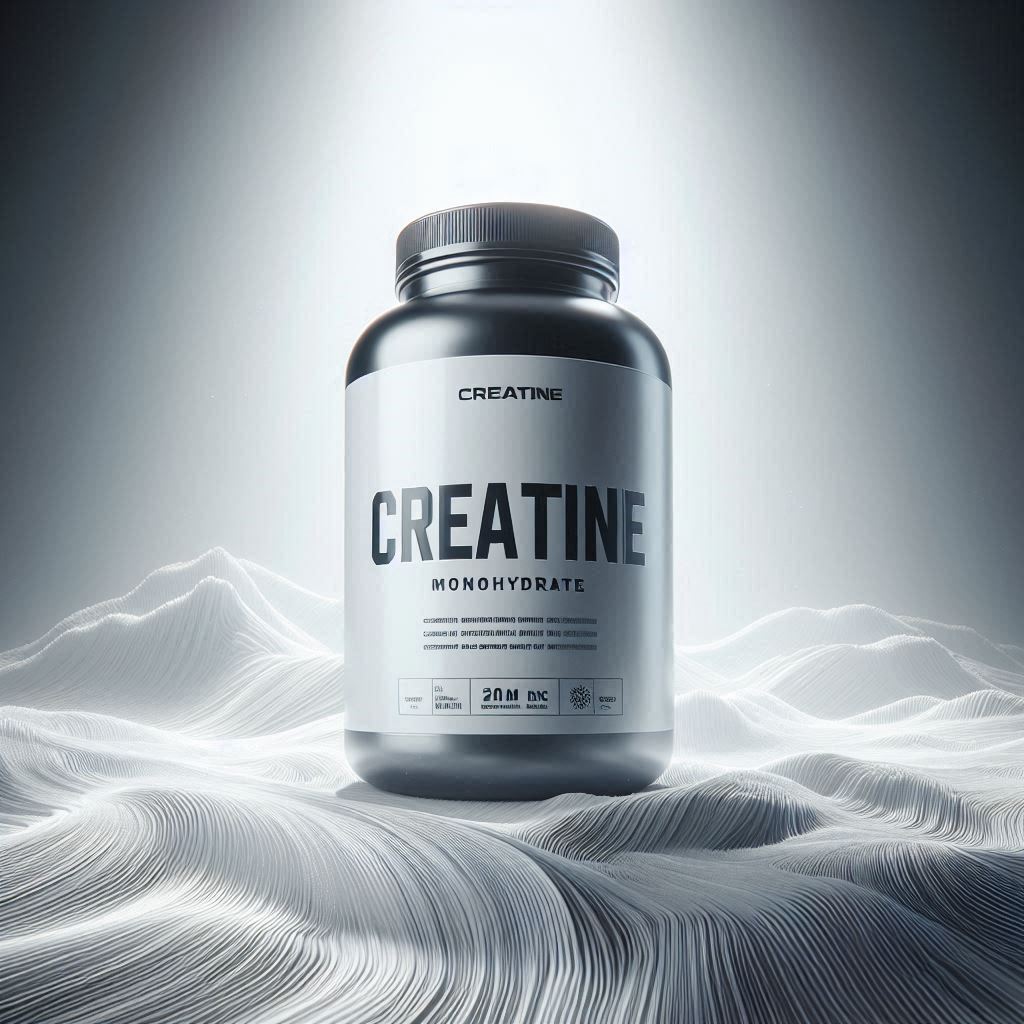What Is Creatine?
Creatine is a naturally occurring compound found in small amounts in certain foods and synthesized by our bodies. It plays a crucial role in energy production, particularly during short bursts of intense physical activity. Creatine is stored primarily in our muscles and acts as a rapid energy source, especially during weightlifting, sprinting, and other high-intensity exercises.
Could it enhance your performance?
- Enhanced Performance: Creatine supplementation has been extensively studied and consistently shown to improve exercise performance. While it can enhance strength, power, and endurance, individual responses may vary.
- Increased Muscle Mass: Creatine promotes water retention within muscle cells, leading to increased cell volume. This swelling effect contributes to muscle growth and a fuller appearance. However, the impact on muscle mass can vary based on factors like training intensity and diet. But if you’re doing it right, you could end up filling your pump cover!
- Improved Recovery: Creatine helps replenish ATP (adenosine triphosphate), the primary energy currency in our cells. Faster ATP regeneration means quicker recovery between sets and workouts, potentially benefiting overall training consistency.
- Brain Health: Emerging research suggests that creatine may have cognitive benefits, including improved memory and mental clarity. However, more studies are needed to fully understand its effects on brain health.
Types of Creatine
Let’s explore some of the creatine variants:
- Creatine Monohydrate: This classic form is well-researched, cost-effective, and widely used. It’s considered the gold standard for creatine supplementation.
- Creatine HMB (Beta-Hydroxy Beta-Methylbutyrate): A combination of creatine monohydrate and HMB, which may enhance muscle growth and reduce muscle breakdown.
- Creatine Phosphate: This variant is less common but plays a role in energy metabolism within cells.
- Creatine Ethyl Ester: Although less popular, it’s worth mentioning. Creatine ethyl ester is believed to have better absorption than creatine monohydrate.
- Creatine Nitrate: Combines creatine with nitric acid, potentially enhancing vasodilation and blood flow.
- Buffered Creatine: Designed to reduce stomach discomfort, buffered creatine is an alkaline form of creatine.
- Micronized Creatine: Similar to creatine monohydrate but with smaller particles for better solubility.
Time It Right!
Timing matters! Here are the best moments to consume creatine:
-
Pre-Workout: Taking creatine before your workout could ensure it’s readily available during exercise. Simply mix it with water or a protein shake in your trusty shaker bottle. No fuss, no hassle—just grab your preferred container and go!
-
Post-Workout: Pair creatine with your post-workout meal this could aid recovery and replenish depleted energy stores. Again, any glass or container will do for this purpose.
-
Daily Maintenance: On non-training days, continue taking creatine to maintain muscle saturation. Whether it’s a glass, a cup, or your favorite mug, make it a part of your routine.
In Conclusion
Creatine is a powerhouse supplement that fuels your workouts, supports muscle growth, and enhances overall performance. As you embark on your fitness journey, consider incorporating creatine into your regimen. Remember, it’s essential to consult with a healthcare professional before starting any new supplement.
May your gains be blessed and your lifts be mighty!
Sources:
1 fitbod.me
2 thegeriatricdietitian.com
3 my.clevelandclinic.org
4 healthline.com
5 athleticinsight.com


Great article! I found your perspective on this topic both enlightening and thought-provoking. The way you break down complex ideas into understandable insights is truly commendable. It’s interesting to see how these developments could shape our future. I’m particularly intrigued by your point about potential challenges and would love to dive deeper into that.
For those who are interested in exploring this topic further, I recommend checking out this resource for more detailed information: comprehensive guide. It offers additional insights that complement what’s discussed here.
Looking forward to hearing others’ thoughts and continuing this discussion. Thanks for sharing such valuable information!
Great article! I appreciate the clear and insightful perspective you’ve shared. It’s fascinating to see how this topic is developing. For those interested in diving deeper, I found an excellent resource that expands on these ideas: check it out here. Looking forward to hearing others’ thoughts and continuing the discussion!